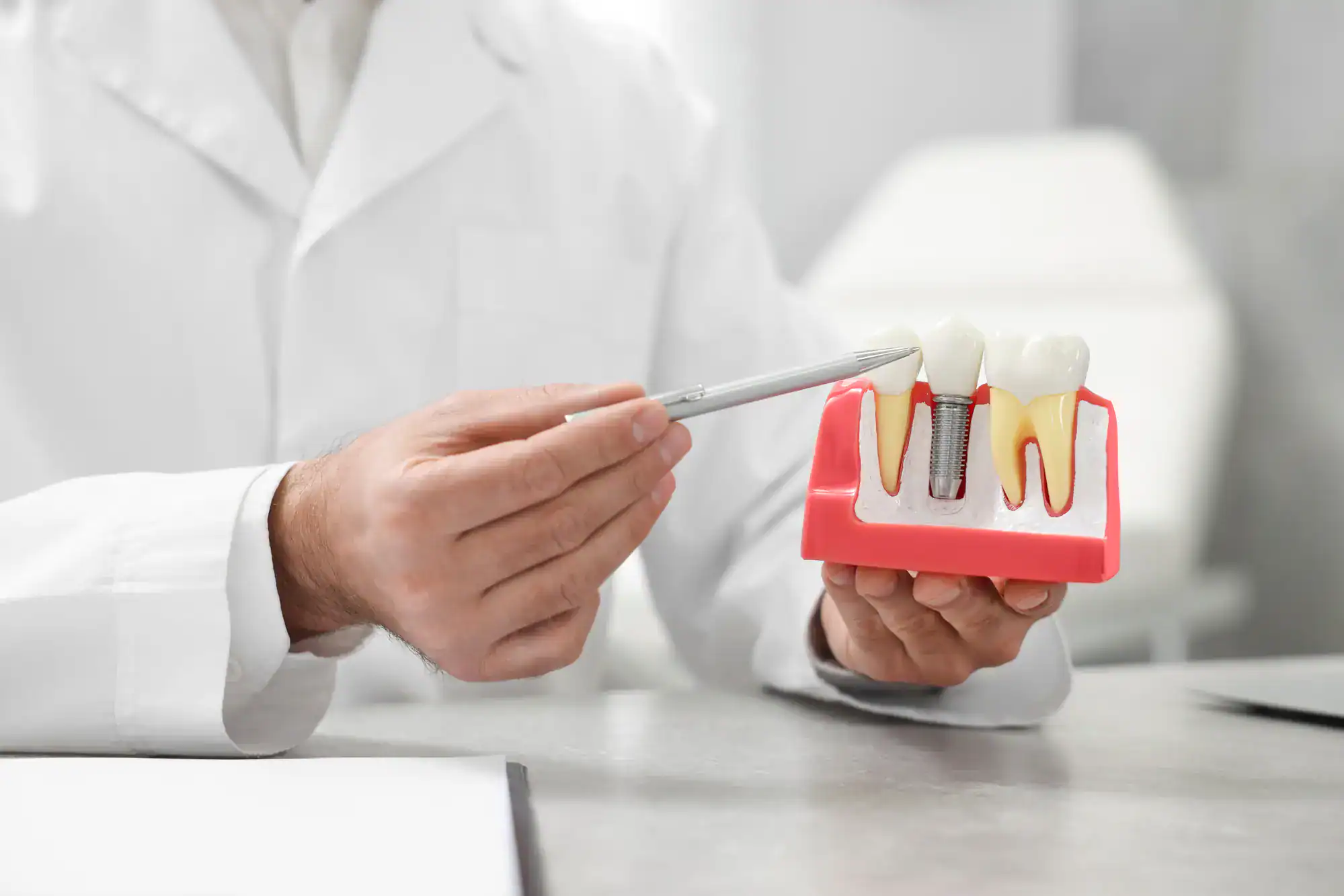
Hear from Our Customers

You know what it’s like living with missing teeth. The embarrassment when you smile. The frustration of avoiding your favorite foods. The constant worry about dentures slipping at the wrong moment.
Dental implants change all of that. They’re the closest thing to getting your natural teeth back. You’ll bite into an apple without thinking twice. Laugh without covering your mouth. Feel confident in every conversation.
Unlike dentures that sit on your gums or bridges that require grinding down healthy teeth, implants become part of your jawbone. They preserve your facial structure, prevent bone loss, and give you the stability you need to live your life fully.
Dr. Scott Kupetz has been serving patients throughout Ulster County for years, helping restore smiles and confidence through advanced dental implant procedures. We understand that choosing dental implants is a significant decision, both personally and financially.
Located in the heart of the Hudson Valley, our office serves families from Shawangunk and surrounding communities who want expert care close to home. Ulster County residents deserve access to the same advanced dental technologies and proven techniques available in major metropolitan areas.
We focus on providing personalized treatment plans that address each patient’s unique needs, whether you’re missing a single tooth or need full mouth restoration.

The process starts with a comprehensive consultation and examination. Advanced imaging helps us determine if you’re a candidate for implants and creates a precise treatment plan tailored to your specific situation.
During the implant placement procedure, we surgically place a small titanium post into your jawbone where the tooth root used to be. This post acts as an artificial root that will fuse with your bone over the next few months through a natural process called osseointegration.
Once the implant has fully integrated with your jawbone, we attach a custom crown, bridge, or denture to complete your restoration. The entire process typically takes several months, but the result is a permanent solution that can last decades with proper care. Many patients are surprised by how comfortable and straightforward the process actually is.

Ready to get started?
Whether you need to replace a single missing tooth or require full mouth restoration, there’s an implant solution that fits your needs. Single tooth implants are perfect for replacing individual teeth without affecting neighboring healthy teeth.
For patients missing multiple teeth, implant-supported bridges offer a stable, permanent alternative to partial dentures. Those facing complete tooth loss can benefit from All-on-4 dental implants or implant-supported dentures that provide the stability and function of natural teeth.
Ulster County residents often choose dental implants because they understand the long-term value. While the initial investment may be higher than other options, implants typically last 25 years or more with proper care. This makes them cost-effective over time compared to dentures that need regular adjustments, relines, and replacements. The improved quality of life and confidence that comes with permanent teeth is invaluable to most patients.

Dental implant costs vary depending on your specific needs, but most single tooth implants range from $3,000 to $5,000 including the implant, abutment, and crown. This investment covers a solution that can last 25+ years with proper care.
Many patients find that when they calculate the long-term costs of alternatives like dentures or bridges that need replacement every 5-15 years, implants actually provide better value. Some dental insurance plans cover a portion of implant treatment, and financing options are available to make treatment more accessible.
The exact cost depends on factors like the number of implants needed, whether bone grafting is required, and the type of restoration. A consultation will provide you with a detailed treatment plan and accurate cost estimate for your specific situation.
Most patients are surprised by how manageable the implant procedure is. We typically perform the surgery under local anesthesia, so you won’t feel pain during the procedure. Many people compare the discomfort afterward to having a tooth extracted.
You can expect some swelling and mild discomfort for the first few days, which responds well to over-the-counter pain medications and ice packs. Most patients return to work within 1-2 days and resume normal activities within a week.
The initial healing takes about 2 weeks, but the implant continues to integrate with your jawbone for 3-6 months. During this time, you can eat normally with some temporary restrictions on very hard foods. The long-term comfort and function of implants far outweigh the short-term healing period.
Dental implants are designed to be a permanent solution, with success rates of 95-98% when placed by an experienced dentist. Many implants last 25 years or longer, and some last a lifetime with proper care and maintenance.
The titanium implant post itself rarely fails once it’s integrated with your jawbone. The crown or restoration on top may need replacement after 15-20 years due to normal wear, but this is a simple procedure that doesn’t affect the implant itself.
Your implant’s longevity depends on factors like your overall health, oral hygiene, and whether you smoke. Regular dental checkups and cleanings, along with good home care, help ensure your implants stay healthy for decades. This durability is why many patients view implants as their best long-term investment in oral health.
Most adults with missing teeth are candidates for dental implants, but we conduct a thorough evaluation to determine if they’re right for you. The main requirements are adequate jawbone density to support the implant and healthy gums free from active disease.
Certain medical conditions like uncontrolled diabetes, heavy smoking, or radiation therapy to the head and neck may affect healing and implant success. However, we can often manage many of these conditions to allow for successful implant treatment.
Age isn’t typically a barrier – many patients in their 70s and 80s successfully receive implants. If you don’t have enough bone density, procedures like bone grafting can often create the foundation needed for implant placement. A consultation and examination will help us determine your candidacy and identify any steps needed to prepare for successful treatment.
The main difference is stability and function. Dental implants are anchored directly into your jawbone, making them as stable as natural teeth. You can eat anything you want without worry about slipping or discomfort.
Traditional dentures sit on your gums and rely on suction and adhesives for retention. This often leads to slipping during eating or speaking, dietary restrictions, and ongoing adjustments as your jaw changes shape over time.
Implants also preserve your jawbone structure, while dentures can actually accelerate bone loss over time. This is why people with long-term dentures often develop a sunken facial appearance. Implant-supported dentures combine the best of both worlds – full tooth replacement with the stability that comes from implant support, eliminating many of the problems associated with traditional dentures.
Caring for dental implants is remarkably similar to caring for natural teeth. You’ll brush twice daily with a soft-bristled toothbrush and fluoride toothpaste, floss daily, and see us regularly for checkups and cleanings.
The key difference is being extra gentle around the implant site during the first few weeks of healing. We may recommend a special mouth rinse or specific cleaning techniques during the initial healing period.
Long-term maintenance involves regular professional cleanings to prevent gum disease around the implant site, avoiding extremely hard foods that could damage the restoration, and not using your teeth as tools. Most patients find implant care easier than maintaining dentures, which require daily removal, soaking, and special cleaning products. With proper care, your implants should feel and function like natural teeth for decades.
Other Services we provide in Shawangunk